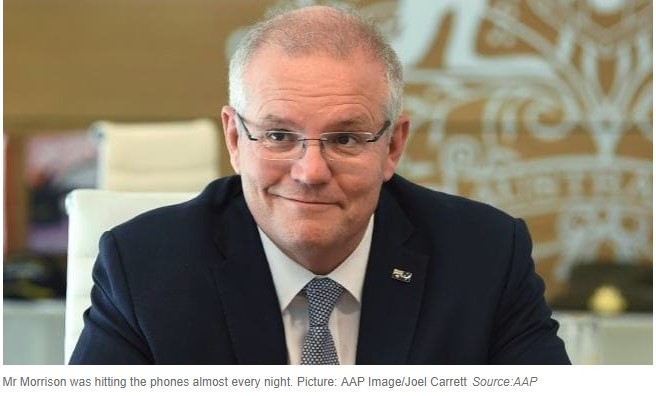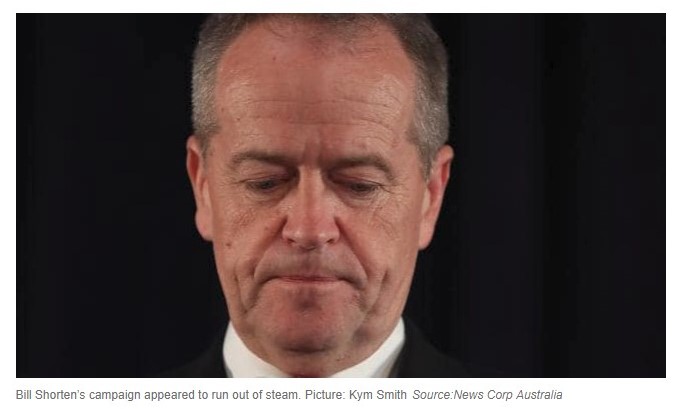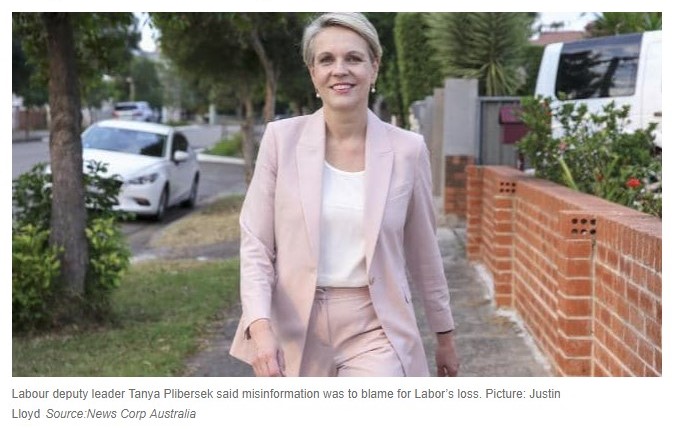Scott Morrison worked phones almost every night in final weeks of campaign, while Labor ran out of s

The election result may have come as a surprise to some, but behind the scenes Scott Morrison was quietly confident, having embarked on an ambitious and private campaign to win the hearts and minds of Australians.
News.com.au has learned that Mr Morrison was hitting the phones almost every night in the final month of the campaign, speaking directly to voters to hear their thoughts and spruik his party’s policies.
The calls, which were made to people in the electorate where he was campaigning that day, began as robo calls to a few thousand people, but told listeners to hang on as Mr Morrison was shortly going to jump on the line personally.
And jump on he did — speaking directly to people listening on the call — often thousands at a time. As well as outlining key details of Coalition policy adapted to that particular area, Mr Morrison also answered questions submitted during the process.
As the campaign drew to a close, Mr Morrison was sometimes doing two or three of these calls a night — working long after the day’s official proceedings had wound down.
The sheer effort and time involved in these calls shows how determined Mr Morrison was to reach as many people as possible.
Conversely, Mr Shorten’s didn’t do many public events in the last week except for a quick visit to Rhodes railway station in Sydney to hand out how-to-vote cards and a short stop at a Chinese restaurant in Burwood to make some dumplings.
Diners at the Chinese restaurant were more enthusiastic but Mr Shorten only met a handful of people, and most were already Labor voters.
Apart from one day when Mr Shorten crisscrossed the country from Tasmania, to South Australia and Western Australia, the pace during the last week seemed sluggish.
After the death of Labor giant Bob Hawke, this slowed even more, with campaigning in Queensland dropped in favour of honouring the former prime minister.
Mr Shorten said there were “more important things than scrounging a vote” but it was also clear he felt confident about a Labor win.
ScoMo meanwhile was burning the midnight oil, flying around the country and to marginal seats right till the final moments — pulling off some 20-hour days in the last week.

And, despite the bad polls, Mr Morrison projected an infectious energy and confidence, was quick to smile and embraced every moment. Unlike other leaders, he did not seem to be embarrassed to put himself in potentially awkward situations.
The Prime Minster’s work rate and positive attitude may have been the extra edge that pushed his campaign over the line, but it’s clear his message was strong and simple too.
He cleverly dismissed last year’s leadership spill as an issue that only mattered to those inside the “Canberra bubble” when pressed by journalists and instead said the election was about one thing — the economy.
Labor’s ambitious agenda wasn’t as easy for Mr Shorten to sell to voters, and it was easy to shoot down, which the Coalition obviously did.
In fact it did it with just two scary words: higher taxes.
Labor’s plan to reform franking credits for retirees was painted as a “retiree tax” and its plan to scrap negative gearing for investment properties was painted as a way to punish Australians who had done the right thing and worked hard.
Despite constant pushback from Mr Shorten, the message stuck when as they went to the polls.
And, as the inquest into Labor’s disastrous showing continues, deputy Labor leader Tanya Plibersek has blamed misinformation related to claims Labor was plotting an “inheritance tax” or a “death tax”.
However, critics on the other side have argued Labor’s policies were not misrepresented at all and that they were just bad ideas.

“One of the most ridiculous things Labor is now saying is that they didn’t explain their policies well enough,” broadcaster Alan Jones said on his show yesterday.
“Well, I have got news for you. It was because you explained them so splendidly that people took to you with a baseball bat.”
Labor also blamed its disastrous results in Queensland on preference deals the Coalition struck with One Nation and Clive Palmer’s United Australia Party.
In Queensland, there was a 3 per cent swing towards One Nation and a 3.47 per cent swing against Labor, based on first preferences.
Labor’s two-party preferred vote dropped by about 1 per cent across the seats with a recorded swing.
Mr Morrison could have a team of up to 78 MPs in the lower house, giving him the chance to appoint a Speaker and govern in majority.
The Australian Electoral Commission began counting postal votes in all 151 seats on Tuesday, having initially prioritised postal votes in the close seats of Boothby, Chisholm, Cowan, Macquarie and Wentworth.
If the current count trends continue, the Liberal-National coalition will have 78 seats, with Labor on 67 and six crossbenchers.
The seats of Macquarie in NSW and Bass in Tasmania are the closest races.
The Liberals’ Sarah Richards is ahead of Labor MP Susan Templeman in Macquarie, with the AEC website showing there were just 50 votes separating the pair.
In Bass, the Liberals’ Bridget Archer sits on 50.3 per cent of the two-party vote, ahead of incumbent Labor MP Ross Hart.
In the previous parliament the numbers were: Liberals 58, Nationals 16, Labor 69, Greens 1, Centre Alliance 1, Katter’s Australian Party 1, independents 4.
Source From: The News https://www.news.com.au/news/scott-morrison-worked-phones-almost-every-night-in-final-weeks-of-campaign-while-labor-ran-out-of-steam/news-story/69163d8cbef85410389c341c6f0cc512








